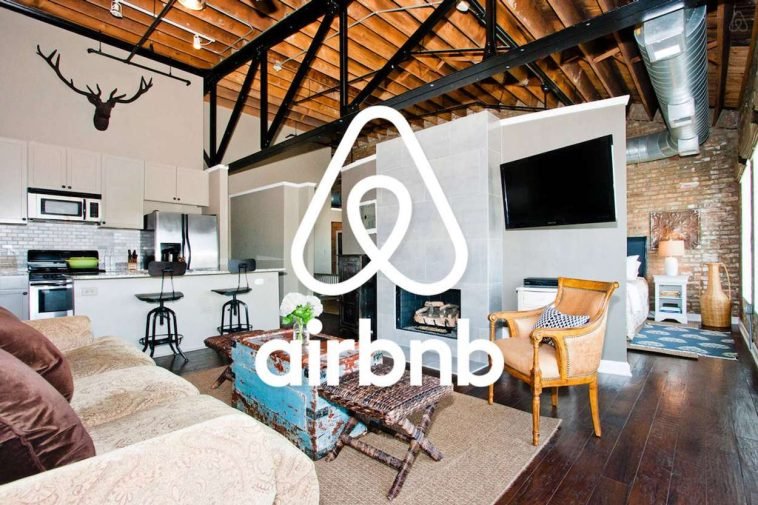Introduction.
When you’re listing a property on Airbnb, every booking matters. Whether you’re new to hosting or have been welcoming guests for years, filling up those available dates with reliable, happy guests is the real challenge.
I’ve put together some of the most effective strategies to increase occupancy rates and attract the right kind of guests, which can help you maximize your revenue and streamline your hosting experience.
Let’s break down some tried-and-true methods, supported by data and practical tips that make your listing as appealing as possible.
I’ll dive into everything from pricing and SEO optimization to guest communication and improving the amenities you offer.
By the end of this, you’ll have actionable steps you can use to boost occupancy rates and stay competitive in the Airbnb marketplace.
Why Is Occupancy Rate So Important?
Your occupancy rate is essentially how much of the time your space is booked versus available. The more occupied it is, the higher your income.
But it’s not just about how often you’re booked; it’s also about ensuring your bookings are from the right guests, who respect your property and leave positive reviews, which can help you continue to book at a high rate. Occupancy is a balance between marketing, pricing, guest experience, and listing optimization.
How Do I Increase My Airbnb Occupancy?
1. Optimize Your Listing Title and Description.
The first step to increasing your occupancy rate starts with creating a listing that stands out and speaks directly to potential guests. Here are a few tips:
- Use descriptive language: Instead of simply saying “Cozy Apartment,” try “Modern Studio with Stunning Mountain Views.” The clearer you are about your property’s unique qualities, the more you’ll stand out.
- Mention nearby attractions: If your place is near popular sites or local attractions, include that in your title or description. Guests often search by location, so this can help with visibility.
- Avoid generic words: Words like “nice” or “comfortable” don’t add much value. Focus on what makes your property unique—whether it’s the decor, a fantastic view, or a prime location.
2. Set Competitive and Flexible Pricing.
Pricing is a major factor in whether your place gets booked. Here’s how to stay competitive:
- Research nearby listings: Look at similar properties in your area, and see how much they’re charging per night. Sites like AirDNA provide data on local market pricing trends.
- Enable Airbnb’s Smart Pricing: This tool adjusts your rate based on demand and helps ensure your price aligns with seasonal changes. Just be mindful, as some hosts feel it undercuts during high-demand periods.
- Offer discounts for longer stays: Many guests book longer if there’s an incentive, which can keep your occupancy rate high even during slower periods.
3. Upgrade Your Photos and Use High-Quality Images.
Your photos are often the first impression potential guests have. Investing in high-quality images can significantly impact occupancy.
- Use natural light: Shoot during the day to capture natural lighting, making your space feel bright and welcoming.
- Show all angles: Include photos from different angles, showing the layout, entryways, and highlights of each room.
- Add seasonal photos: Show how your property looks throughout the year. Winter guests might be interested in a cozy fireplace, while summer visitors will want to see the outdoor patio or pool.
4. Encourage Positive Reviews and Ratings.
Reviews and ratings directly impact your listing’s visibility and appeal. Here’s how to consistently earn positive feedback:
- Communicate proactively: Check in with your guests via message after their arrival to make sure they’re comfortable and address any issues immediately.
- Offer clear instructions: Include easy-to-follow house rules and check-in/check-out processes, so there’s no confusion or frustration.
- Thank guests: After their stay, thank them and politely request a review. This small touch can lead to more positive reviews.
5. Provide Essential and Premium Amenities.
Today’s guests expect basic amenities like Wi-Fi, clean towels, and a fully-stocked kitchen, but offering a few extra perks can really help your listing stand out.
- Go beyond the basics: Consider adding things like a coffee machine, Netflix, or local guidebooks. Even small upgrades can make a big difference.
- Stock essentials: Provide basic toiletries like shampoo, conditioner, and soap. Many guests expect this level of service.
- Offer convenience features: Keyless entry, extra blankets, and charging stations can make your property more appealing and increase positive feedback.
6. Optimize for SEO and Airbnb Search Algorithm.
Airbnb’s search algorithm considers several factors, including response time, review quality, and booking frequency. Here are some tips to improve your search ranking:
- Respond quickly: Airbnb rewards hosts who respond promptly, so try to answer messages within an hour.
- Accept booking requests: Try to avoid declining reservations, as this can affect your ranking.
- Regularly update your listing: Airbnb favors active listings, so make small updates to your description or photos periodically.
7. Experiment with Discounts and Promotions.
Running promotions and offering discounts can help attract more bookings, especially in low-season periods.
- Offer last-minute discounts: If your property is vacant a week before, reduce the price slightly to attract last-minute travelers.
- Include early-bird discounts: Some guests plan their stays months in advance. Offering a discount for early bookings can help you secure income ahead of time.
- Give repeat guest discounts: This not only shows appreciation but also encourages loyalty, increasing the chances of positive reviews and more frequent bookings.
Pros and Cons of Boosting Your Airbnb Occupancy Rate
Pros:
- Higher income: Increased bookings mean more income, especially when managed strategically.
- More visibility: Frequent bookings and high ratings help your listing appear higher in search results.
- Greater efficiency: With a higher occupancy rate, you become familiar with hosting, which can streamline the check-in/out processes and communication.
Cons:
- More wear and tear: Higher occupancy rates lead to more frequent use of amenities, increasing the need for repairs and maintenance.
- Increased management time: More bookings require more time for cleaning, check-ins, and guest communication.
- Risk of burnout: Frequent hosting can lead to fatigue, especially if you’re managing it yourself without additional help.
FAQ
1. What is the average Airbnb occupancy rate?
The average occupancy rate for Airbnbs globally hovers around 48% but varies significantly by location. In busy tourist spots, it’s higher, while it’s lower in rural areas.
2. How do I calculate my occupancy rate?
Divide the number of nights your property is booked by the total available nights in a month, then multiply by 100 for the percentage.
3. Does Airbnb’s Smart Pricing work well?
It can be helpful for keeping up with demand, but some hosts feel it underprices in high-demand seasons. Many prefer using it alongside their own research to strike a balance.
4. Are there specific amenities that attract guests more?
Yes, essentials like Wi-Fi, coffee makers, and fully-stocked kitchens are almost expected. Premium perks like a washer, Netflix, or local guidebooks make a property stand out.
5. How do I stand out if there are many listings in my area?
Invest in unique decor, highlight special features in your listing, and maintain a high response rate. Focusing on guest experience and reviews will also help you rank higher in searches.
Conclusion
Increasing Airbnb occupancy is about more than just filling up your calendar—it’s about finding the right strategies to keep your property booked while maintaining high standards and maximizing guest satisfaction.
From pricing and quality photos to guest communication and SEO, every detail plays a role in getting those bookings.
Now that you have a few strategies, what’s the next step for your listing? Which area do you think will have the most impact on your occupancy rate?





GIPHY App Key not set. Please check settings